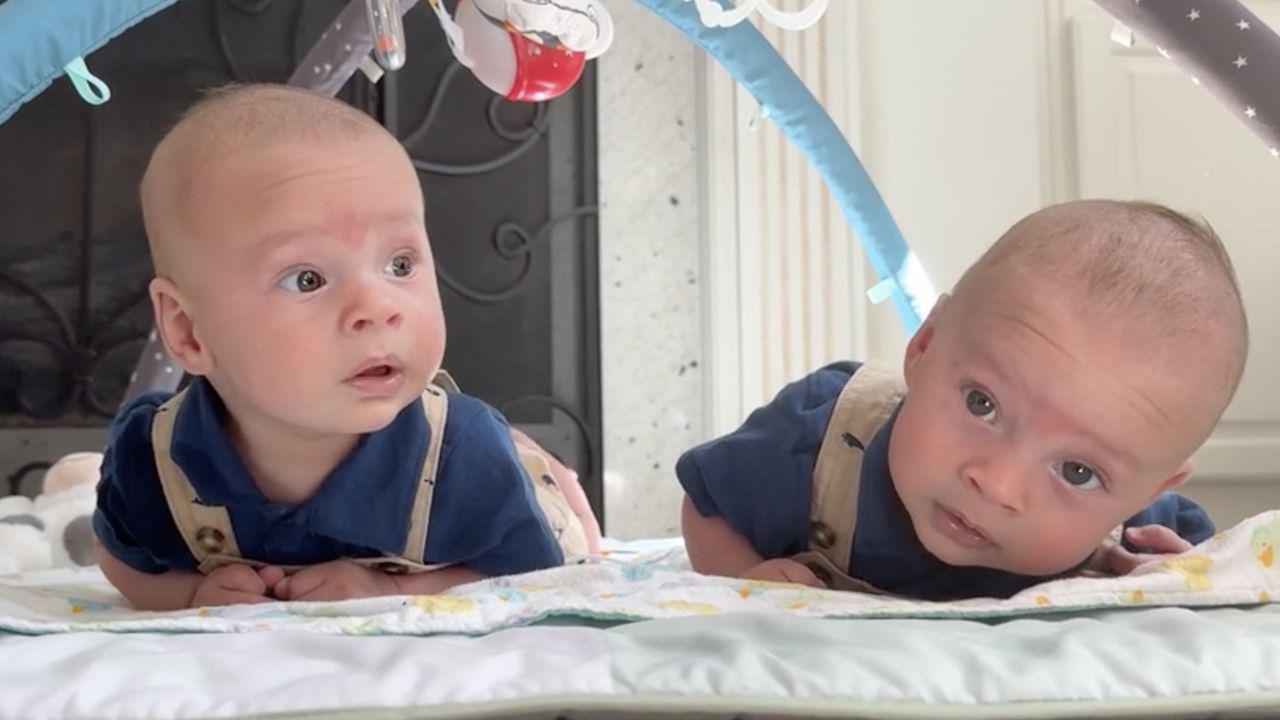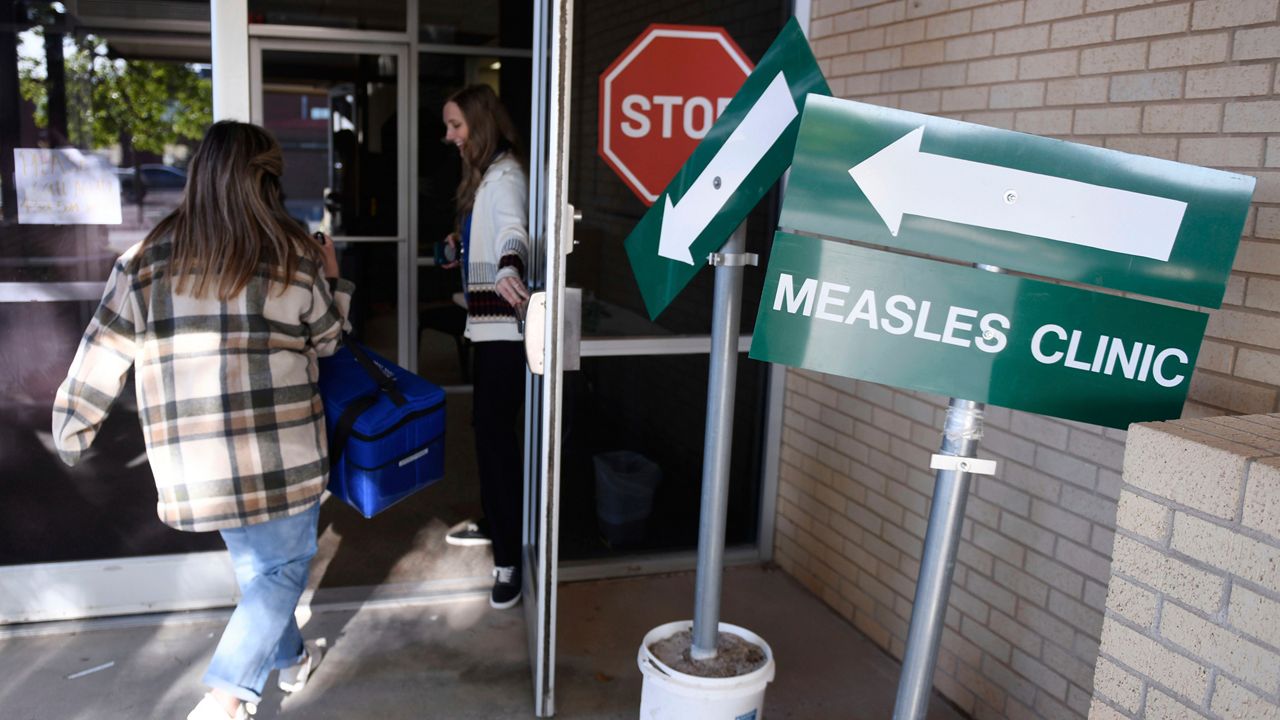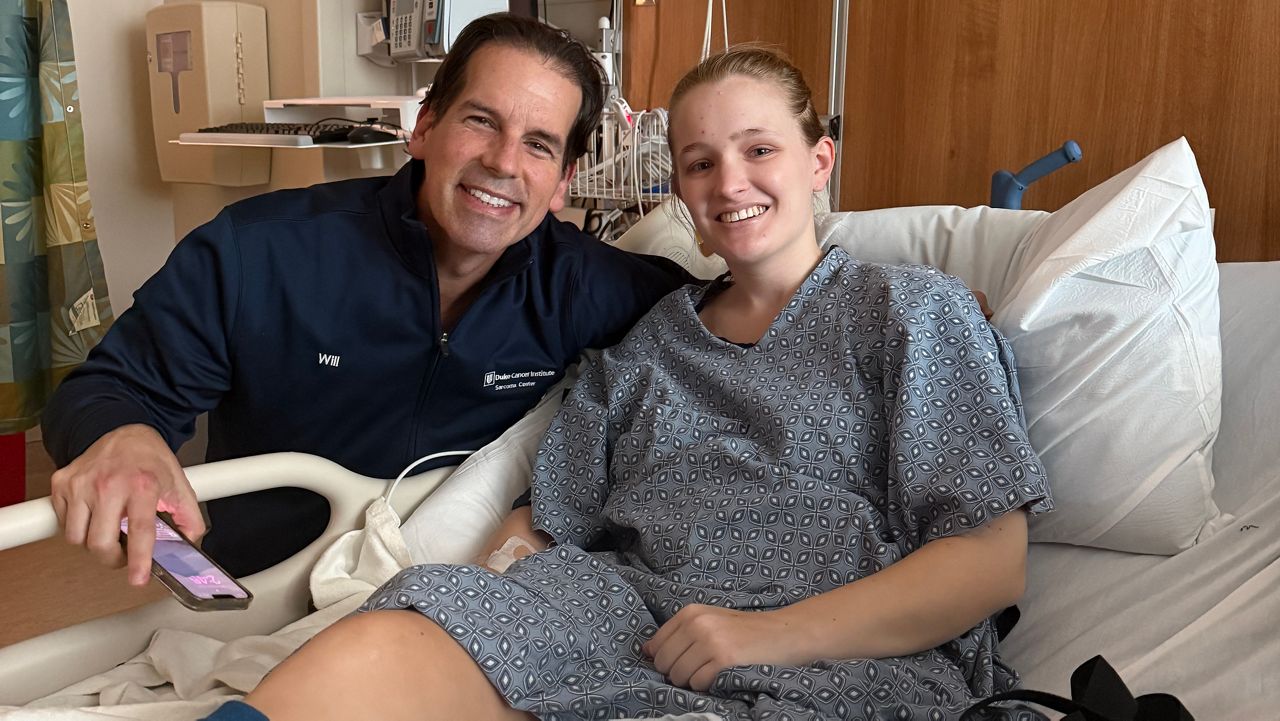CHARLOTTE, N.C. — New research shows music could help improve memory, particularly as patients age.
A study by Northeastern University found music can help activate the medial prefrontal cortex, which is the brain's reward center
This is one of the areas that loses activity and function as patients age, particularly those with dementia
Researchers says more studies are needed to understand how music therapy could directly target memory and cognition
Nancy Brady is 81 and has Alzheimer's disease. She can’t recall much about what she did this week, but when she hears the strum of the guitar strings, she comes to life. Her music therapist, Kendall Bogan, played the 1956 song "Que Sera, Sera" by Doris Day. Brady’s daughter has noticed big changes in her mother’s behavior through music.
“When she was really lost and unable to communicate the music would bring her back,” Brady’s daughter Nancy Ernest said.
Ernest says music helped her mom recover during a scary moment in April when she broke her hip. She said her mom could barely speak or open her eyes, and she didn’t know where she was.
“I thought I was going to lose her in the hospital,” Ernest said. “I had made preparations, and it was pretty bad.”
But after music therapy she was mobile and talking again.
“She was speaking, moving and in a wheelchair,” Ernest said. “She was able to move the wheelchair around with her feet. She was so much better.”
A new study at Northeastern University shows that music can improve memory. Bogan believes the study highlights the importance of her work. She has seen several cognitive improvements in her patients after music therapy.
“In Alzheimer’s and dementia patients certain parts of the brain start to die,” Bogan said. “The functions that go with those dying parts can be rewired by the brain because it is using other parts of the brain.”
The study looked at a group of adults ages 54 to 89. They had them listen to music they were familiar with and then scanned their brains. Researchers noticed that several pathways on both sides of the brain were activated, like the medial prefrontal cortex. According to the National Institute of Health, this plays a big regulatory role in decision-making and memory.
“Because music activates all the parts of the brain, when you hear a specific song that is associated with a memory, it brings it back like the snap of your fingers,” Bogan said.
Researchers say more studies are needed to determine how music therapy could directly target memory, but there is no question in Ernest's mind that music is a powerful force in her mom’s life.
“It reminds them of a past time, and it gives them an opportunity to just feel happy for a moment,” Ernest said.
The Alzheimer's Association is helping fund many research studies to try and curb the progression of the illness. It will hold its annual walk to end Alzhemier’s in the fall. That walk is happening at various locations across North Carolina as listed below. For a full list, visit the website.
- Charlotte: Oct. 22, Truist Field
- Asheville: Oct. 8, Pack Square Park
- Greensboro: Oct. 15, LeBauer Park
- Raleigh: Oct. 15, Halifax Mall
- Wilmington: Nov. 5, Wrightsville Beach Park








